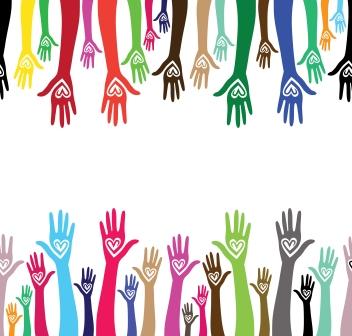Written by Elizabeth Rosenfield
Click here for PDF
Are you a family member or friend of someone with OCD, BDD, or a related disorder? Perhaps you are feeling overwhelmed, confused, and unsure of how to help your loved one. It can be exceptionally difficult to watch someone you care about suffer with a mental illness. However, the good news is that there are steps you can take to support your loved one. As you read below, click on the bolded links for more information about that topic.
I want to help my loved one, what is the first step?
The first step to helping your loved one is to educate yourself about the disorder he or she is suffering with. The more you know about your loved one’s disorder and the available treatments, the more effective you can be in understanding their symptoms and how to help them.
Why did this happen? Is it my fault?
A common sentiment among family members of individuals with OCD and related disorders is to feel guilty or responsible for their loved one’s illness. OCD or BDD is no one’s fault and blaming yourself is only counterproductive. Instead, focus on productive action you can take to improve the current situation and create a brighter future for you and your loved ones. As a family member or friend of someone with OCD, BDD, or a related disorder, you have the capacity to be a positive ally to your loved one.
Similarly, having a mental illness is not your loved one’s fault or choice, nor is it a reflection of weakness or defect of character. Watching your family member or friend with OCD, BDD or a related disorder engage in seemingly useless rituals and behaviors may indeed make you feel angry and frustrated at times. However, letting go of guilt and blame will allow you to better concentrate on ways you can fight the disorder together.
How can I help my family member or friend get treatment?
Encourage your family member or friend to seek treatment. Beginning such a conversation may be difficult. Start by non-judgmentally pointing out the symptoms and distress you have noticed your family member experiencing. You cannot force your loved one to seek treatment, but calmly and genuinely expressing your concerns and observations is within your control. Let your loved one know that many kinds of treatment are available for OCD and related disorders, and offer to help them find a local treatment provider.
People with OCD and related disorders are often hesitant or fearful to seek treatment. If this is the case, leave resources around so they can read or listen to them when they feel ready. Moreover, you can even offer to take the first steps of going to treatment together with your loved one. Importantly, offer hope. Many people with BDD, OCD, and related disorders do not believe that treatment could work for them. Reiterate to your loved one that most people experience a reduction in symptoms after receiving empirically validated treatment for their disorder.
Am I helping my family member or enabling their disorder?
In an effort to alleviate your loved one’s distress, you may have found yourself engaging in behaviors such as helping a loved one with his or her rituals, replying to requests for reassurance, or doing tasks for the person that he or she wants to avoid. These kinds of acts are referred to as family accommodation behaviors. Although these behaviors or reassurances may mitigate your loved one’s distress and anxiety in the moment, they are ultimately not beneficial to his or her psychological health in the long run. Rather, they only serve to strengthen the disorder.
Given that OCD and BDD are often accompanied by severe distress and anxiety, not engaging in these accommodation behaviors with your loved one may be challenging for you and your family member both. However, there are ways you can support your loved one and help alleviate their distress without conceding to their disorder. Thinking about your loved one as separate from his or her disorder can sometimes be helpful for family and friends. A good question to ask yourself is; “Are my behaviors helping my loved one or their disorder?” Always support your loved one, but never his or her disorder.
Also, for more information on this important topic, stay tuned for an upcoming blog post specifically about the pitfalls of reassurance!
How can I stop family accommodation behaviors?
With the help of a professional, talk about ways to interrupt rituals with your loved one and make a collaborative plan for doing so. Let your family member know that you will be decreasing your involvement in their rituals and explain that you want to help them reduce their symptoms and feel better, but engaging in the behaviors with them or providing excessive reassurance will only make their symptoms worsen. Although it is important to stop enabling the disorder, these accommodation behaviors may have been going on for a long time. Thus, reducing accommodation behaviors should be done gradually.
My family member or friend is in treatment for their disorder. How can I support them at home?
If your loved one is in treatment, remember that there is no perfect way to get better. As such, encourage your loved one to do the best that they can, independent of other people’s expectations or anticipated rate of symptom improvement. Be sure to avoid day-to-day comparisons of progress given that some days will surely be better than others. There is no overnight cure for OCD, BDD, or related disorders. Recovering is indeed possible, but it takes time to change deep-seeded beliefs and behaviors.
Finally, recognize your loved one’s achievements no matter how small or trivial they may seem. Let your family member or friend know when they have done a good job or when you see them putting forth a significant effort, even if they don’t complete their goal. Remember that it can take a monumental effort to conquer their greatest fears, even if such fears seem irrational to you. Praise can be a powerful motivator for your loved one to keep trying. Make your loved one aware that you believe in their ability to overcome their problem!
Want more resources and advice on this topic? Check out our newest resource for family and friends of individuals with OCD, BDD, and related disorders here.
©2012 Massachusetts General Hospital OCD and Related Disorders Program | Reprint only with permission



